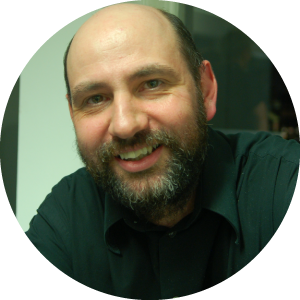
JIM BENSON
Jim Benson is the creator of "Personal Kanban," a lean process used to manage knowledge workers. Knowledge work is a fundamentally tricky type of work to gain focus around, as those engaged in this type of work are by nature inventive. Invention and innovation are unpredictable, and related tasks are often amorphous. For the past two decades Jim has worked at uncovering ways for individuals and groups to communicate, collaborate, and find clarity in unpredictable and amorphous environments. He is also the CEO of Modus Cooperandi, a company focusing on collaborative management. He writes about and works with clients to achieve cultures of continuous improvement. These cultures actively seek out opportunities to improve job satisfaction and/or performance. Since starting Modus, Jim has helped clients as diverse as The World Bank, The United Nations, NBC Universal, The Library Corporation, and Comcast find collaborative solutions, identify and implement improvements, and create more innovative cultures.
View Jim's keynote synopsis »Embracing Disruption: You Are Your Process
Jim Benson | Author, 'Personal Kanban'
At the heart of all canned processes are a few dangerous assumptions:
- Someone else did it right this way, therefore so will you
- You aren't smart enough to sculpt your own processes
- Process is unchanging
- A few metrics have meaning to everyone
- If you fail, it's because you didn't do the process right (the process is infallible)
These are notions to be rejected. Markets, companies, projects, teams, and individuals combine to create and meet needs for products. Interactions between those actors are always different and evolve as the market evolves.
Yes, we want to have and understand processes to create quality products. We want it to evolve. We want to have control over it, rather than the other way around.
In this keynote, Jim Benson will discuss what life has been like under canned processes and then provide a simple framework to help you create a great process that fits your organisation.
×











